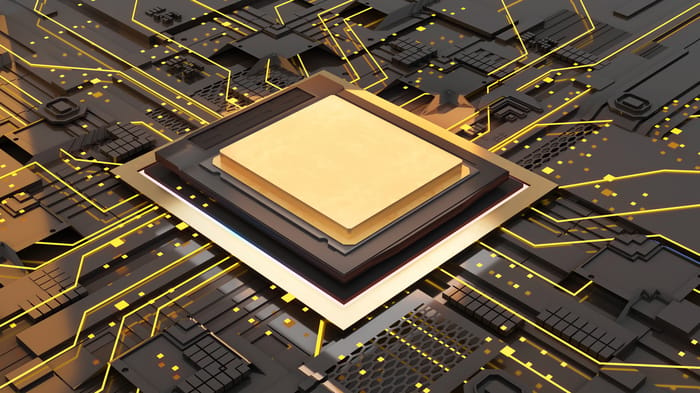
Connects decision-makers and solutions creators to what's next in quantum computing
Nvidia, IonQ Demonstrate Hybrid Quantum SystemsNvidia, IonQ Demonstrate Hybrid Quantum Systems
Molecular structure workflow has potential drug discovery applications

IonQ and Nvdia have demonstrated an end-to-end application workflow that combines IonQ’s quantum computing hardware with Nvidia’s CUDA-Q open-source development platform.
The application, showcased at the SC24 high-performance computing conference, uses a hybrid quantum-classical approach to calculate the electronic structure of molecules.
This has potential for chemistry-focused applications, including drug discovery. By understanding how drug molecules interact with specific proteins in the human body, researchers can develop more effective treatments.
This demonstration combined the capabilities of IonQ's latest quantum computer, IonQ Forte, its IonQ Hybrid Service and Nvidia’s A100 Tensor Core GPUs suite, using the accelerated computing capabilities of the CUDA-Q platform.
CUDA-Q is a hybrid quantum-classical computing platform that enables the integration and programming of quantum processing units (QPUs) and GPUs in a single workflow.
“IonQ is building on its approach of accelerating AI, scientific compute and other supercomputing workloads with quantum hardware, enabling entirely new ways to approach previously unsolvable problems,” said IonQ senior vice president of engineering and technology Dean Kassmann.
“Today’s molecular modeling demonstration illustrates why CUDA-Q is a great platform for achieving seamless integration and top-tier performance with our leading quantum hardware.”
The key benefit of this approach is it investigates the properties of molecules in a resource-efficient way, paving the way for advanced molecular dynamics modeling in pharma and other commercial domains.
“Useful quantum applications will need to draw on both quantum hardware and AI supercomputing resources,” said Nvidia director of quantum algorithm engineering Elica Kyoseva.
“The CUDA-Q platform is allowing researchers and developers to explore these paradigms by accessing Nvidia accelerated computing alongside IonQ’s quantum processors.”
The collaboration between IonQ and Nvidia underscores the importance of combining quantum hardware and AI supercomputing resources for practical quantum applications.
About the Author
You May Also Like
.png?width=100&auto=webp&quality=80&disable=upscale)
.png?width=400&auto=webp&quality=80&disable=upscale)




